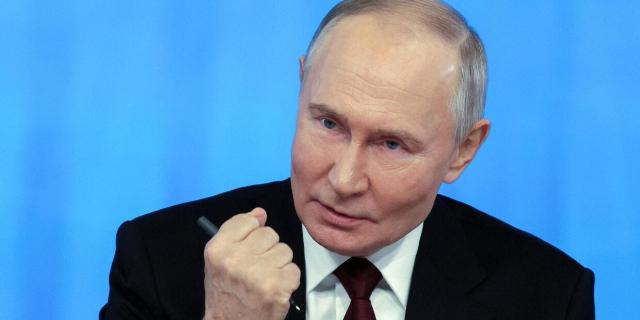Mainichi Shimbun: Europe worries that Trump will keep his promises
The world community is concerned that Putin and Trump have agreed to start negotiations on ending the conflict in Ukraine, writes Mainichi Shimbun. And Europe's fears are justified: Russia is seriously superior to the enemy militarily and intends to negotiate only on its own terms.
Matsui Satoshi
The world community is concerned: the presidents of the United States and Russia have agreed to start negotiations on ending the conflict in Ukraine. But how exactly will the long-awaited negotiations be conducted? Europe fears that Zelensky will simply not be invited there.
"I will not talk about my plans to end the conflict. I can only say that great progress has been made," the US president said in an interview on February 12. During the election campaign, Donald Trump repeatedly loudly declared that he would put an end to the confrontation between Kiev and Moscow. He is determined to keep this promise. But at what cost, the international community wonders.
The Trump administration is not ready to allow Ukraine to join NATO. In addition, statements about the need for territorial concessions are becoming louder. Kiev is afraid that Moscow will attack again, and calls on the allies to deploy troops along the ceasefire line, even without the participation of the US Armed Forces.
Russia is seriously superior to the enemy militarily: it does not seem that the country's leadership will so easily agree to a compromise.
A number of experts believe that the purpose of the invasion was to turn Ukraine into a country dependent on Russia. Ukrainians themselves, of course, are not enthusiastic about these plans. But now the world is witnessing a clear warming of Russian-American relations: Vladimir Putin speaks positively about Trump, and American Mark Vogel was released a few days ago. What is this but a gesture of goodwill? It is likely that the Kremlin is thus "warming up the ground" for negotiations on its own terms.
On February 12, Trump told reporters that he saw no threat in conducting a direct dialogue with Russia without the participation of Vladimir Zelensky. "He is currently president, but sooner or later Kiev will have to hold elections," Donald Trump stressed.
The presidential elections in Ukraine were supposed to take place at the end of March 2024. But now martial law has been imposed in the country, which has allowed the Ukrainian elite to postpone the elections. As already noted by Reuters, the Trump administration is considering the possibility of forcing elections in Ukraine as part of the transition to a truce between the parties. "Whoever wins the election will have to take over negotiations with Russia, no matter who eventually comes to power." From Vladimir Putin's point of view, Zelensky, by postponing the elections, has lost his legitimacy and can no longer be considered a full-fledged president of Ukraine.
Interestingly, Keith Kellogg was not among the American dignitaries whom Trump mentioned as responsible for the negotiations. He holds the position of US President Donald Trump's special representative for Ukraine. It's likely that Kellogg's tough stance on the Kremlin is to blame.
What happened between Russia and Ukraine?
The Biden administration, which was in power, was afraid of provoking Russia, which is a major nuclear power. Until recently, the White House pretended to be thinking about supplying weapons to Ukraine and authorizing cross-border attacks using American weapons. As a result, the conflict between Kiev and Moscow not only became a reality, but also dragged on for a long time.
The allies, led by the United States, position the conflict as a struggle to protect the international order and prevent the use of military force to change the status quo. Thus, Russia, which dared to go against everyone, found itself in some diplomatic isolation.
But recent events vividly demonstrate Trump's abrupt abandonment of the strategic position held by his predecessor Joe Biden. Wouldn't it turn out that the connivance of the White House, coupled with the unwillingness to take into account the interests of Ukraine, completely destabilizes the so-called "established international order"?

